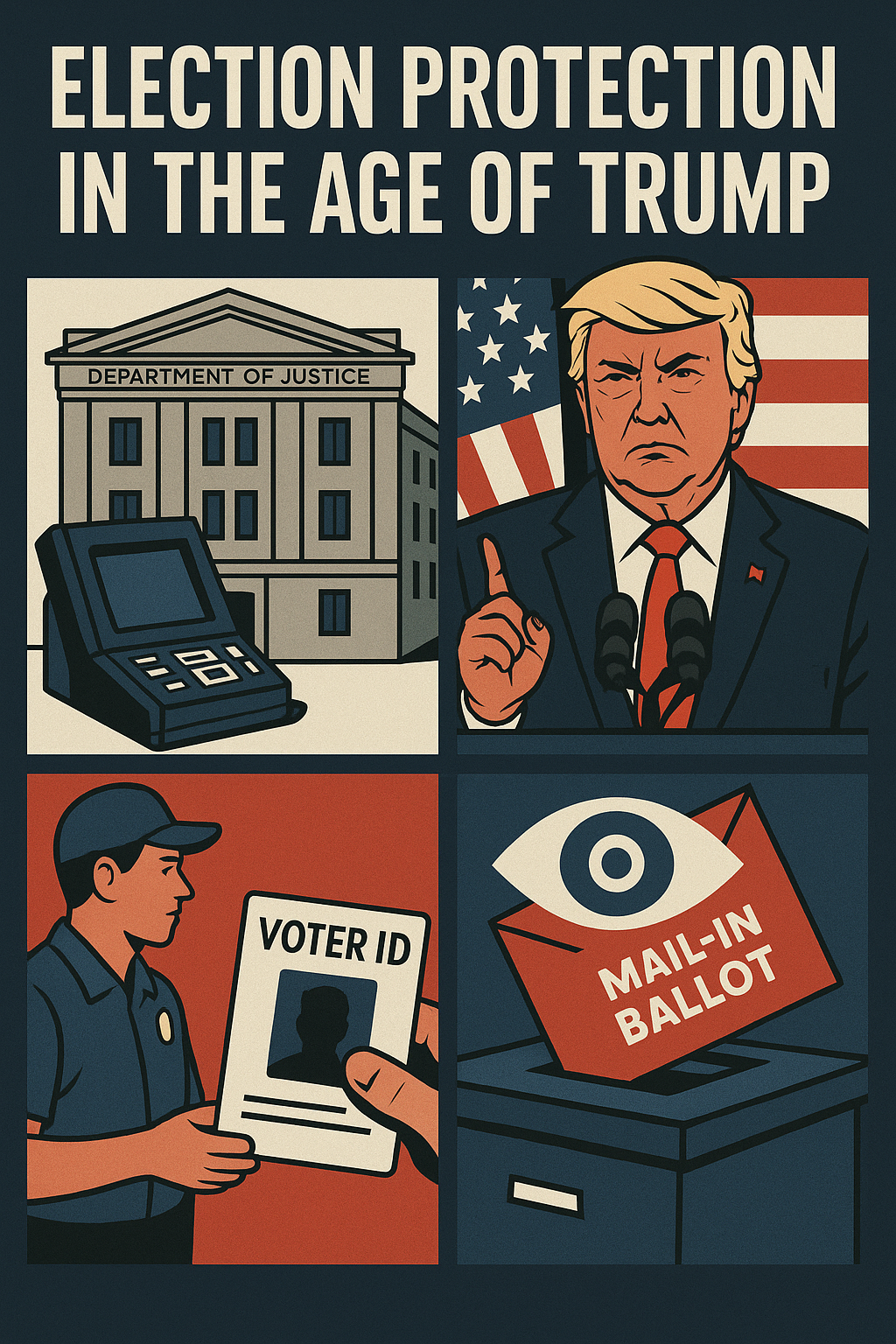
FEATURE
Election Protection in the Age of Trump
As the United States approaches the 2026 midterm elections, the integrity of America’s voting system faces renewed challenges under the Trump administration. A mix of federal overreach, regulatory changes, political discord and technological threats has made election protection more critical than ever.

Federal Intrusion Meets Constitutional Limits
In recent months, President Trump’s Department of Justice (DOJ) has repeatedly requested access to Dominion voting equipment used in the 2020 election in Missouri—only to be refused by local officials citing legal constraints and security concerns. This represents a significant departure from the traditional deference to state-run elections and has prompted bipartisan alarm over potential federal overreach.
Simultaneously, Trump has signaled intent to issue sweeping executive orders requiring voter ID for all elections and severely restricting mail-in voting—permitting it only for the “seriously ill” and military personnel. Constitutional scholars warn such directives may exceed presidential authority and infringe on states’ rights.
Appointments and Agencies Under Strain
The appointment of Heather Honey—a researcher known for promoting discredited voter fraud theory—as Deputy Assistant Secretary for Election Integrity at DHS has heightened concerns about politicizing the security apparatus. Meanwhile, longstanding cybersecurity and election protection capabilities have eroded as executive actions undercut the Cybersecurity and Infrastructure Security Agency (CISA), eliminating critical information-sharing programs and undermining federal coordination.
Mail-in Ballots, Hand Counting and Misinformation
Trump has repeatedly criticized mail-in voting, aligning himself with foreign leaders such as Vladimir Putin in questioning its legitimacy Politico. Experts warn that promoting hand-counting or online voting could make the system more vulnerable to foreign interference or fraud. Evidence suggests mail-in systems and modern voting machines remain more reliable and accurate than these alternatives.
Voter Suppression Risks
A March 2025 executive order and pending legislation like the SAVE Act would require documentary proof of citizenship to register to vote—making the process more burdensome for tens of millions of Americans lacking immediate access to such documents. Advocacy groups warn these moves could systematically disenfranchise marginalized communities.
On-the-Ground Threats
Threats to election infrastructure have escalated. In 2024, officials recorded over 200 bomb threats targeting polling stations and tabulation centers across the U.S.—prompting law enforcement sweeps and emergency response measures Wikipedia. In response, some jurisdictions extended voting hours, although research shows such remedies may not fully offset suppressed turnout—for instance, in Georgia’s DeKalb County, precincts impacted by threats experienced lower turnout than in 2020.
Foreign Interference and Digital Misinformation
Generative AI has emerged as a potent tool in foreign misinformation campaigns, enabling deepfakes, fake videos, synthetic identities and targeted botnets—all designed to destabilize trust in democratic processes. While the greatest immediate risks may stem from domestic distrust and extremist narratives, technological tools exacerbate vulnerabilities.
Restoring Trust Through Innovation
Amid growing skepticism, researchers have begun exploring technological fixes. For example, blockchain-based voting systems that combine biometric verification and immutable ledger systems offer a secure, transparent model for future elections arXiv. AI-assisted “pre-bunking”—preemptively countering false election narratives—has also shown promise in reducing voter misinformation across partisan lines.
State Leadership and Counterbalance
At the state level, figures like Gabriel Sterling of Georgia—who publicly challenged Trump’s false claims in 2020—are now running for Secretary of State on platforms upholding secure elections. Such leadership provides a critical counterweight to federal pressure and helps maintain state autonomy over election administration.
Navigating the Path Ahead
Protecting election integrity in this era requires vigilance on several fronts:
- Legal and institutional resistance: State officials must assert constitutional boundaries when federal agencies attempt to overstep.
- Cyber resilience: Rebuilding federal cybersecurity frameworks like CISA’s EI-ISAC is essential.
- Technological innovation: Blockchain voting and AI prebunking present opportunities for modernization.
- Civic leadership: Trusted local officials and transparency initiatives must lead restorations of voter trust.
- Public awareness: Educating voters on threats and safeguards—from misinformation to structural changes—is imperative to resilience.
In the face of federal pressure and public mistrust, protecting democracy still finds support in local leadership, technological innovation and informed civic engagement.